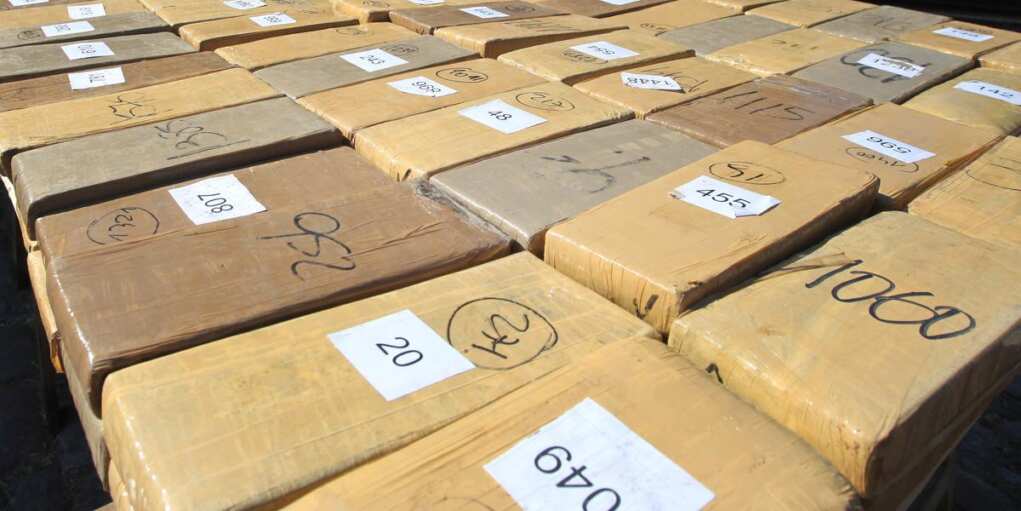Major Cross-Border Arrest—Drug Kingpin Captured

The Trump administration has scored a major victory in its ongoing war against transnational crime, securing the extradition of 26 fugitives from Mexico — many of them high-ranking figures in some of the hemisphere’s most violent criminal syndicates. The move is part of a sweeping push to dismantle the cartels’ grip on drug trafficking and human smuggling operations, which President Trump’s administration has formally designated as foreign terrorist organizations.
The Department of Justice confirmed Tuesday that federal law enforcement took custody of the suspects, who include leaders of networks tied to mass drug shipments, brutal violence, and sophisticated smuggling routes that span from South America to the U.S. border. While officials have not released all the names, sources indicate several are connected to notorious outfits such as the Sinaloa Cartel, known globally for its ruthless methods and multi-billion-dollar narcotics empire.
The handover follows a period of intense diplomatic and law enforcement coordination between Washington and Mexico City. It also comes just days after reports that President Trump authorized the potential use of U.S. military force against major cartel organizations — a signal that the administration is willing to escalate beyond traditional counter-narcotics measures if necessary.
Justice Department officials hailed the extraditions as a breakthrough moment in joint U.S.-Mexico security cooperation. “These individuals will now face the full force of the American justice system,” one senior DOJ official said, emphasizing that the move not only disrupts cartel operations but also sends a clear deterrent message to criminal bosses still at large.
Under Trump’s direction, the federal government has pursued an aggressive campaign to reclassify the cartels not simply as organized crime syndicates but as foreign terrorist groups — a designation that broadens the legal and operational tools available for dismantling them. This shift has paved the way for expanded intelligence sharing, cross-border task forces, and the potential deployment of military assets to hit cartel targets more directly.
Analysts note that Mexico’s willingness to extradite top-tier figures marks a significant development, given that such moves have historically been complicated by sovereignty concerns, corruption, and the threat of retaliatory violence. In the past, Mexican authorities have often preferred to prosecute high-value targets domestically. But with U.S. pressure mounting and cartel violence spilling over into public life, Mexico’s latest cooperation suggests a strategic pivot toward deeper partnership in confronting these organizations.
The extradited suspects will face a range of charges in U.S. courts, including drug trafficking, racketeering, conspiracy, money laundering, and human smuggling. Many are believed to have overseen operations responsible for flooding American streets with fentanyl, cocaine, heroin, and methamphetamine, fueling an ongoing overdose crisis that claims tens of thousands of lives annually. Others allegedly managed sprawling human trafficking pipelines that exploit vulnerable migrants for profit, often subjecting them to brutal abuse.
While the names of all 26 extradited individuals have not yet been officially disclosed, law enforcement insiders suggest that several cases could draw significant public attention once unsealed in federal court. Trials could reveal new intelligence about cartel leadership structures, smuggling methods, and the connections between Mexican crime groups and global trafficking networks.
Critics of the administration’s hardline approach argue that militarizing the drug war could risk escalation and unintended consequences in Mexico. But supporters counter that the cartels’ entrenched power, corruption networks, and cross-border reach demand a bold, uncompromising response. For the Trump administration, the extraditions represent not only a legal victory but a strategic milestone in a broader campaign to dismantle what it views as a direct national security threat.
With these cartel figures now in U.S. custody, federal prosecutors are preparing cases that could keep them behind bars for decades — if not for life. And if recent moves are any indication, this is unlikely to be the last major transfer of high-profile fugitives from Mexico to the United States under Trump’s watch.
